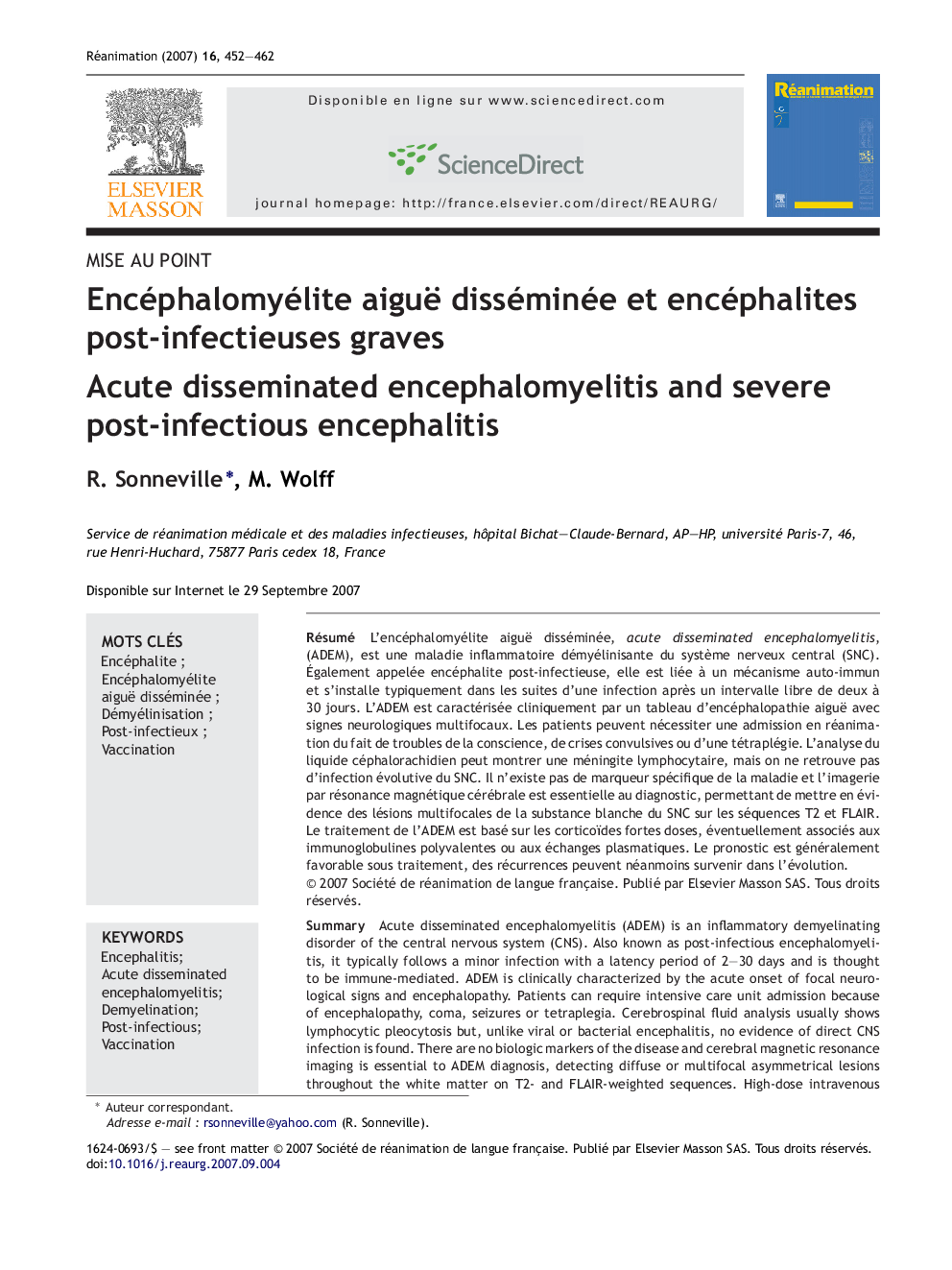| Article ID | Journal | Published Year | Pages | File Type |
|---|---|---|---|---|
| 2612269 | Réanimation | 2007 | 11 Pages |
Abstract
Acute disseminated encephalomyelitis (ADEM) is an inflammatory demyelinating disorder of the central nervous system (CNS). Also known as post-infectious encephalomyelitis, it typically follows a minor infection with a latency period of 2-30 days and is thought to be immune-mediated. ADEM is clinically characterized by the acute onset of focal neurological signs and encephalopathy. Patients can require intensive care unit admission because of encephalopathy, coma, seizures or tetraplegia. Cerebrospinal fluid analysis usually shows lymphocytic pleocytosis but, unlike viral or bacterial encephalitis, no evidence of direct CNS infection is found. There are no biologic markers of the disease and cerebral magnetic resonance imaging is essential to ADEM diagnosis, detecting diffuse or multifocal asymmetrical lesions throughout the white matter on T2- and FLAIR-weighted sequences. High-dose intravenous steroids are accepted as first-line ADEM therapy and several studies also reported beneficial effects of plasma exchanges and intravenous immunoglobulins. Outcome of ADEM patients is usually favorable but recurrent or multiphasic forms have been reported.
Related Topics
Health Sciences
Medicine and Dentistry
Emergency Medicine
Authors
R. Sonneville, M. Wolff,
